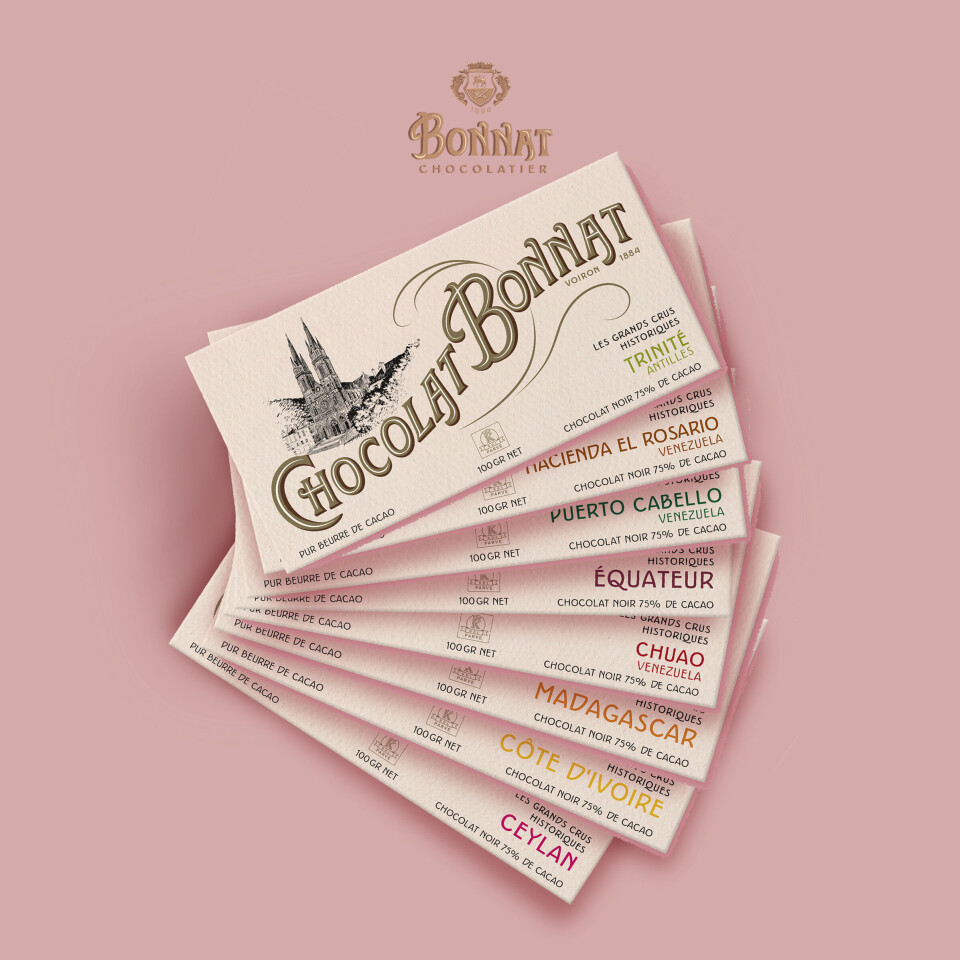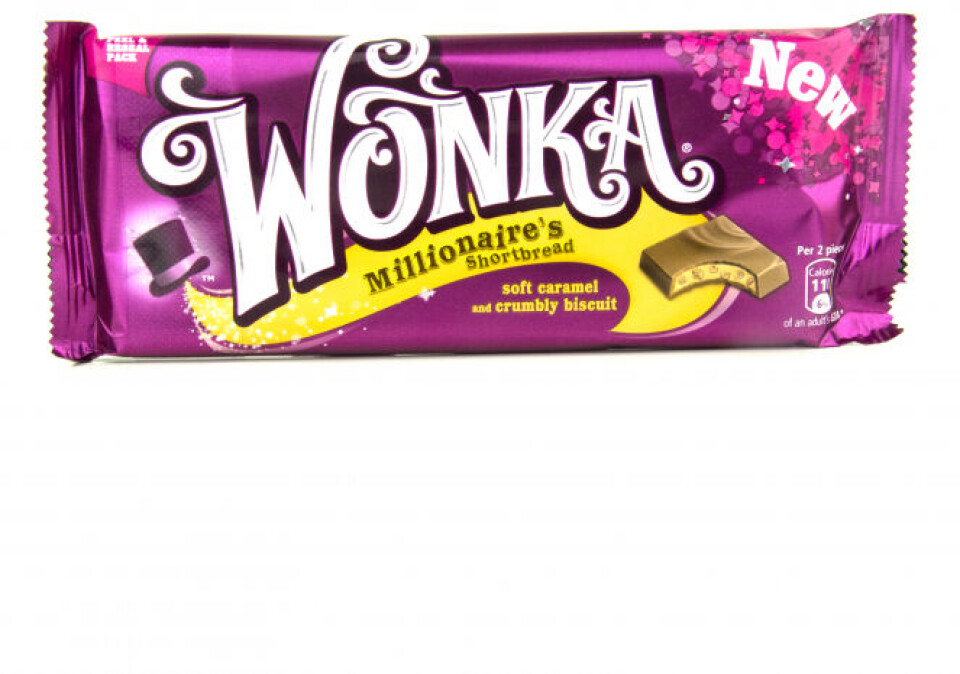-
How does France’s April Fools’ Day differ from that in UK or US?
It is in schools where we see a real French peculiarity
-
Five famous April Fools' pranks played on the French public
The French media have pulled some classic ‘poissons d’Avril’ - here are five of the best
-
Festivals, holidays and places to visit in France in April 2025
Including a gladiator battle in a Roman arena, an international garden festival and the Paris marathon
How French chocolate bars inspired Willy Wonka
One of the oldest chocolate brands in activity, Bonnat’s first factory opened in 1884

They are coloured black, orange, blue or brown.
Others are tinted red or purple.
But, mostly, the luckiest customer unpacking them is provided with an inner golden ticket.
They are the Wonka bars, the fictional chocolate bars from Roald Dahl Charlie and the Chocolate factory’s children book, as depicted in its motion picture version by Tim Burton with the golden ticket giving access to a tour of the cherished factory.

Only Tim Burton was actually inspired by Chocolaterie Bonnat, based in the Isère town of Voiron (20,000 inhabitants) about 100 kilometres south-west of Lyon.
Factory opened 1884
The factory opened in 1884 when Félix Bonnat, a sweet and dessert confectioner in Voiron, decided to found his own base to roast and transform cocoa brown bean into chocolate.
These days it is run by Stéphane Bonnat, the fifth generation of the family to run the firm.
Around the beginning of the 20th century, Bonnat was sold in around 180 French shops and began a commercial adventure in overseas French and foreign territories, giving more international footing to its soon iconic chocolate bar.
Many consumers were in the habit of writing congratulatory letters, including former First Lady Jackie Kennedy.
Bonnat’s historic chocolate bar has not changed since its beginnings.
It features Voiron’s Saint-Bruno church on its left with a green-sprinkled sky enveloping the town and lower nearby buildings.
It features Chocolat Bonnat in diagonal, bold letters with additional information also provided, mainly the chocolate’s origin, its percentage and historic foundation.
“It caught the attention of a lot of our clients,” said Elise Guerrillot, director of communications of Chocolaterie Bonnat, adding it causes a fresh buzz every time the movie is broadcast on television.
Ms Guerrillot said she was unaware the company had signed any right-of-use contract but assumed Mr Burton took free inspiration from it.
One of the oldest chocolate brands in activity, Bonnat has extended its bars to include various other colourings, expanding its range from the historic white chocolate bar.
Awarded best chocolate in the world
Its Selva Maya bar, taking its name from a former Mayan territory in Mexico, was awarded best chocolate in the world in 2016 at the International Chocolate Awards.
Wonka Bars did not meet the same success, as a graham-cracker-chocolate-dipped bar was first introduced in the United States in 1976.
Likewise, the real Wonka bars marketed bars with golden $10,000 tickets around the time the movie was released.
Most brands and variations were discontinued in the United States and Europe at various dates in the 2010s.
As for the golden ticket, Chocolaterie Bonnat did partner with French company Comptoir Authentique in a contest in 2021 in which some Bonnat’s bars were loaded with €20, €50 and €100 vouchers.
Unlike Willy Wonka’s chocolate factory, French people are free to walk in Bonnat’s historic shop during office hours.
No golden ticket needed.
Related articles
Two centuries of French glasses, from functional to high fashion
Historic French shoe brand Paraboot struggles to meet Instagram demand
Wall ads from golden age of French publicité preserved
























